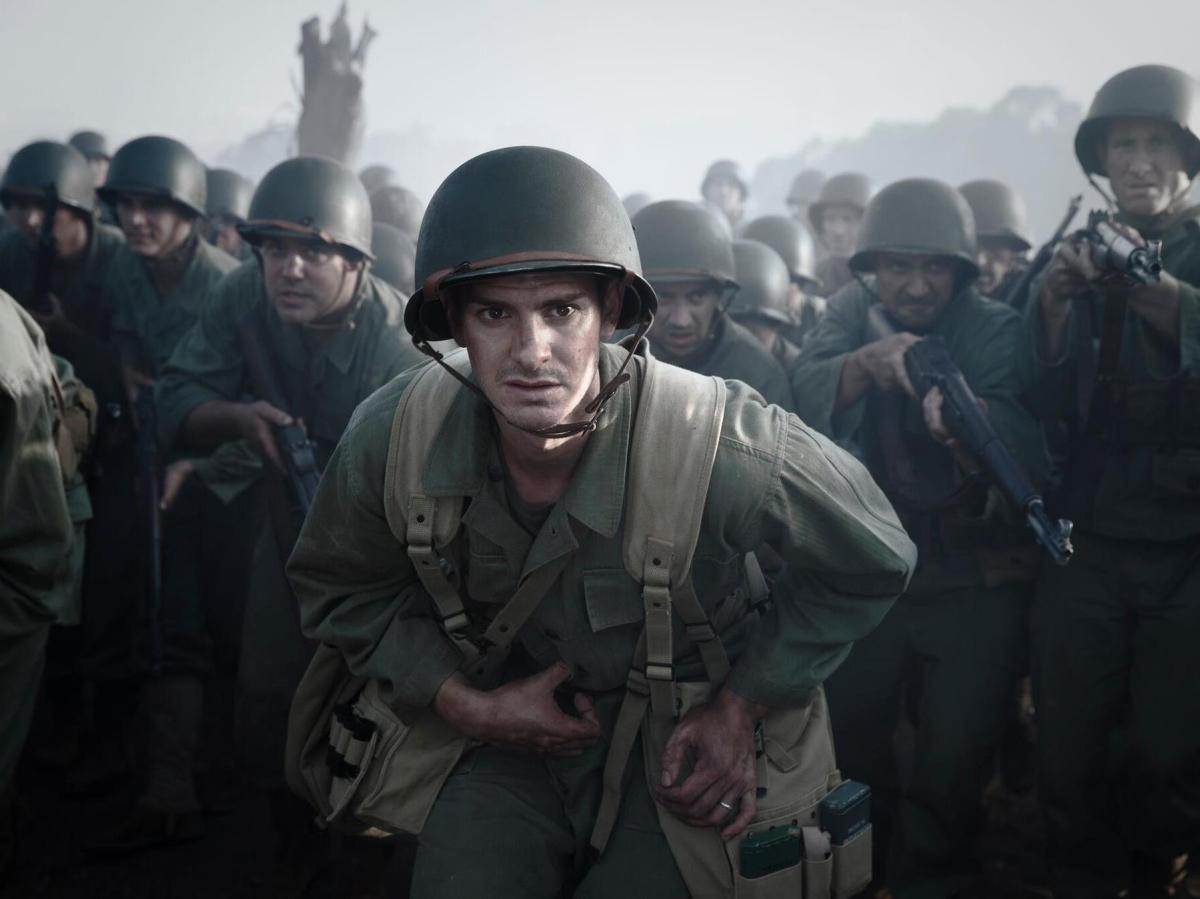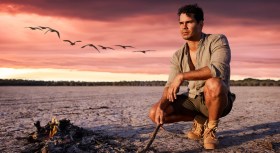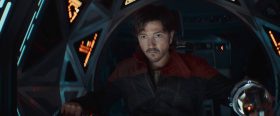Steeped in deep-seeded patriotism and shot with the same warm tones such sentiments are designed to inspire, Hacksaw Ridge is an account of undeniable valour, telling the tale of real-life figure first branded a coward for refusing to bear arms, then demonstrating the true courage of his beliefs. It’s also a feature that’s as blatant as they come, barely stopping short of preaching its themes of tolerance, acceptance, faith, pacifism and bravery. Making his first directorial effort in a decade, Mel Gibson (Apocalypto) combines the religious missive that was The Passion of the Christ with the brutality of history seen in Braveheart. Thankfully, despite the lack of subtlety, the stirring, crowd-pleasing feelings of the latter win out over the controversy of the former — and the emotions aroused are, like the feats seen on screen, hard-earned.
Growing up cognisant of his hard-drinking, war-scarred father’s (Hugo Weaving, The Dressmaker) military service leaves a strong imprint on Desmond Doss (Andrew Garfield, 99 Homes). As does a childhood incident that almost rendered his brother seriously hurt or worse, leading to Doss’ decision to take his Seventh-Day Adventist principles, and the eschewing of violence, killing and weapons, to heart. But, as a young man driven to enlist after Pearl Harbour — and to leave his nurse sweetheart Dorothy’s (Teresa Palmer, Lights Out) at home while he heads to the front lines — his convictions of country and faith clash. In training, his superiors (including True Detective’s Vince Vaughn and Everest’s Sam Worthington) are incredulous that he thinks he can be a soldier as a conscientious objector, and without a gun. Doss’ deeds in combat, however, prove him much, much more than a man standing by his beliefs.
The action, and the accompanying sense of crisis, kicks in in tandem with Doss’ army training, though Gibson takes his time getting there. Beforehand, the actor-turned-filmmaker expends ample honey-toned scenes from Andrew Knight (Ali’s Wedding) and Robert Schenkkan’s (TV’s All the Way) script establishing Doss’ character in broad, clichéd strokes that Garfield helpfully and convincingly fills in. Indeed, sans Spider-Man outfit, he plays every bit the modest hero whether standing up to Weaving’s world-weary, ever-so-vulnerable patriarch, wooing Palmer’s sincere love interest or grinning and bearing Vaughn’s scene-stealing speeches. Once the film shifts to Okinawa, if the measure of a serviceman is his ability under pressure, then Garfield compelling demonstrates’ Doss’, as well his own as an performer.
In his hands amidst a who’s who of Australian actors (Barracuda’s Rachel Griffiths, Looking for Grace’s Richard Roxburgh, and Cleverman’s Ryan Corr among them), experiencing pangs of sympathy and the sought-after stirring of support for Doss’ decisions is easy; more so whenever Garfield’s lanky gait clambers and scurries around the titular battlefield. There, he’s given assistance courtesy of a gripping sense of grim war spectacle that stresses the bigger picture (the vast scope of the fighting; the many, many nameless souls losing their lives; the sheer mass of the mud- and blood-streaked carnage) as well as individual acts, sacrifices and consequences. As his previous helming offerings have illustrated, Gibson is firmly at home on such a stage, and makes the sights and sounds of the fray burst off the screen. Of course, much of the credit deserves to go cinematographer Simon Duggan (Warcraft) and editor John Gilbert’s way (The November Man), with Hacksaw Ridge benefiting from their finessed touch.
Still, there’s one thing evident in the film’s visceral visuals, aped in its multi-layered acoustics and worn on Garfield’s face, but missing when the feature is considered as a whole: shades of grey. Trying so forcefully to evoke a reaction isn’t always a flaw, and pays off when the movie’s second half comes around, but Gibson’s indulgences are always noticeable. Luckily, so too is the strength of the true tale Hacksaw Ridge explores.
Rating: 3 ½ stars out of 5
Hacksaw Ridge
Director: Mel Gibson
Australia | USA, 2016, 131 mins
Release date: 3 November
Distributor: Icon
Rated: MA
Actors:
Director:
Format:
Country:
Release:





